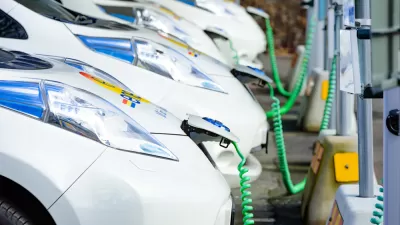The eccentric megaprojects keep coming in Dubai, leaving some to question the environmental wisdom of so much development in a notoriously water-poor desert.
"Of course, in a place like Dubai, this kind of audacious project goes relatively unnoticed, among the many others currently underway. To pick just one other example, 30,000 mature trees are scheduled to be shipped to Dubai to help landscape a new Tiger Woods-designed golf course that will be bordered by "22 palaces and 75 mansions". Even without the twin threats of climate change and a global economic recession, Dubai's grandiose plans might seem short-sighted to some. Is it really wise to be building at all, let alone on this scale, in a place that the United Nations describes as one of the most "water-imperilled" environments on the planet, but where per capita water use is three times the global average?"
"Dubai's ruling elite insists it now places "sustainability" at the heart of its plans for existing and future projects. Last year, Sheikh Mohammed bin Rashid Al Maktoum, Dubai's ruler, spelled out the "Dubai Strategic Plan 2015" in a speech. He explained that oil now contributes only 3% to Dubai's GDP and that his plan is to "sustain Dubai's environment, ensuring that it is safe and clean". Each new construction project now boasts a paragraph in its brochure about how it will "follow environmental best practice", but even if these new measures do materialise, Dubai is a place built on the ideology and convenience of cheap, free-flowing oil. Its business model, particularly its ever-expanding tourist sector, is based on the premise that people will always be willing and able to fly long distances to get there. (Some airlines now euphemistically describe Dubai as both a "long short-haul" destination and a "long-haul weekend break destination".) A new six-runway mega airport is being built to serve a predicted capacity of 120 million passengers a year."
FULL STORY: Chilling developments in Dubai

Maui's Vacation Rental Debate Turns Ugly
Verbal attacks, misinformation campaigns and fistfights plague a high-stakes debate to convert thousands of vacation rentals into long-term housing.

Planetizen Federal Action Tracker
A weekly monitor of how Trump’s orders and actions are impacting planners and planning in America.

San Francisco Suspends Traffic Calming Amidst Record Deaths
Citing “a challenging fiscal landscape,” the city will cease the program on the heels of 42 traffic deaths, including 24 pedestrians.

Half of Post-Fire Altadena Home Sales Were to Corporations
Large investors are quietly buying up dozens of properties in Altadena, California, where a devastating wildfire destroyed more than 6,000 homes in January.

Opinion: What San Francisco’s Proposed ‘Family Zoning’ Could Really Mean
Mayor Lurie is using ‘family zoning’ to encourage denser development and upzoning — but could the concept actually foster community and more human-scale public spaces?

Jacksonville Launches First Autonomous Transit Shuttle in US
A fleet of 14 fully autonomous vehicles will serve a 3.5-mile downtown Jacksonville route with 12 stops.
Urban Design for Planners 1: Software Tools
This six-course series explores essential urban design concepts using open source software and equips planners with the tools they need to participate fully in the urban design process.
Planning for Universal Design
Learn the tools for implementing Universal Design in planning regulations.
Gallatin County Department of Planning & Community Development
Heyer Gruel & Associates PA
JM Goldson LLC
City of Camden Redevelopment Agency
City of Astoria
Transportation Research & Education Center (TREC) at Portland State University
Jefferson Parish Government
Camden Redevelopment Agency
City of Claremont





























